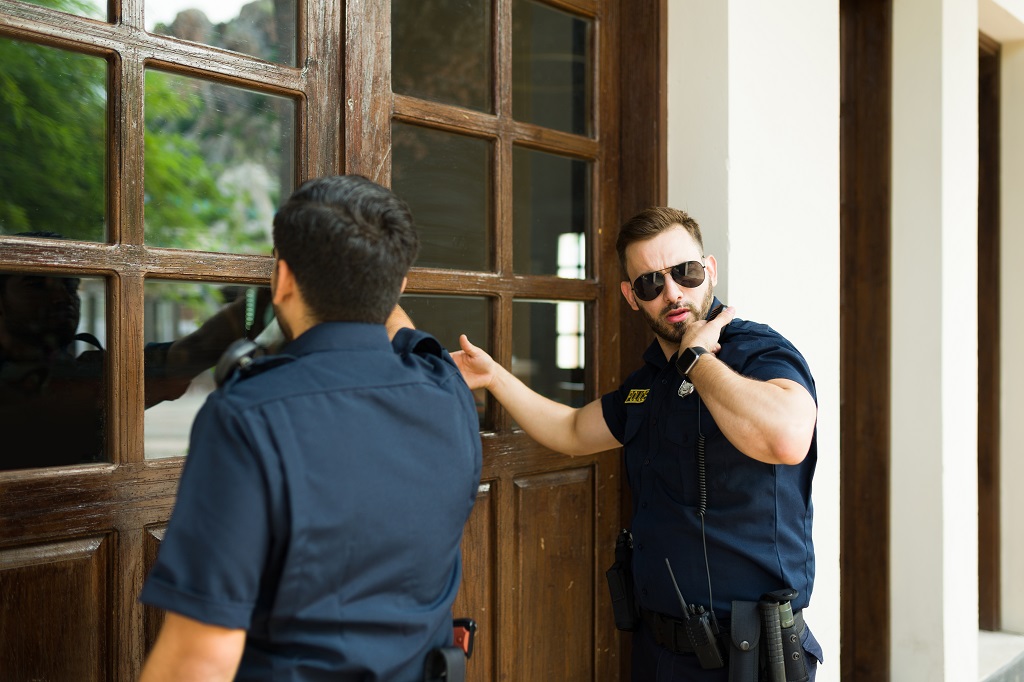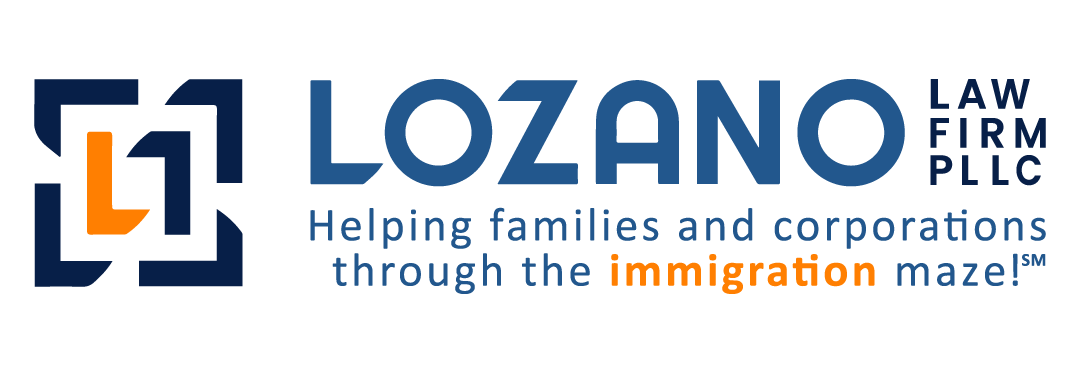Those individuals facing criminal charges are entitled to the help of immigration attorneys in San Antonio, TX. However, less than 40% of immigrants facing deportation in the United States have access to legal representation. In Texas, undocumented immigrant cases are not considered criminal offenses. This situation leaves them without legal assistance.
As you read on, learn how significant immigration attorneys are in handling removal cases in Texas. You will also learn about SB4 law, the SAFE Network that The Vera Institute established, and how immigration attorneys can help you.

Seek The Help Of Immigration Attorneys In San Antonio TX
Seeking the assistance of immigration attorneys for deportation relief is crucial. These attorneys possess legal knowledge in immigration law, enabling them to deal with the complex requirements of deportation relief cases. They assess eligibility accurately based on your circumstances. They can guide clients through the application process, and ensure all necessary documentation is prepared and submitted correctly.
Immigration attorneys also provide procedural guidance, advocate for your rights in court, handle communication with immigration authorities, and assist with appeals if necessary. Their knowledge and experience increase the chances of a successful outcome while protecting people from potential mistakes or delays.
Additionally, immigration attorneys offer emotional support and reassurance during a stressful and overwhelming process. They can also help you understand complex laws such as the SB4 law.
The SB4 Law
The SB4 law, also known as Senate Bill 4, is a Texas law enacted in 2017. It is an immigration law that aims to enhance cooperation between local law enforcement agencies and federal immigration authorities. It requires local law enforcement officers to inquire about the immigration status of individuals during routine interactions, such as traffic stops. Also, this law involves detaining and transferring individuals believed to be in the country illegally.
SB4 also penalizes local officials who fail to comply with the law’s provisions, which allows for civil penalties, such as fines. It also includes the removal from office of officials who enact policies or practices that are deemed to violate SB4.
The law has been highly controversial and has faced legal challenges from advocacy groups and local governments. They argue that it encourages racial profiling, undermines community trust, and places an undue burden on local law enforcement agencies. Opponents of SB4 say that it leads to the targeting and profiling of immigrants. This action creates fear and mistrust within immigrant communities.
Key Points In Understanding The SB4 Law
As you embark on this law, it is vital to know the actors involved in its enforcement, the potential ramifications for government officials, and the impact on immigrant communities. By exploring these key points, you will have a clear picture of SB4’s influence on the social fabric, politics, and legal landscape.
Broader Enforcement Scope
Beyond police officers, Senate Bill 4 (SB4) assigns a range of individuals and officials. It includes city council members, county commissioners, sheriffs, district and city attorneys, and campus police, with the responsibility to enforce immigration measures. They are prohibited from adopting policies that would prevent or significantly limit personnel, such as corrections officers or peace officers from checking an individual’s immigration status.
Moreover, this law will also prohibit policies hindering the reporting of undocumented immigrants to federal authorities or other local entities. Additionally, government officials cannot obstruct federal immigration officers from enforcing immigration laws at local jails.
Consequences For Non-Compliance
Some officials argue that SB4 does not mandate investigating an individual’s immigration status. However, it allows state officials to remove from office any elected or appointed official who hinders enforcement or cooperation with federal immigration authorities. Non-compliant officials, such as sheriffs, police chiefs, constables, or jail administrators, may face Class A misdemeanor charges, with fines. They range from $1,000 to $1,500 for the first violation and up to $25,000 for subsequent ones.
Encouragement For Reporting
The law encourages employees of local governments, colleges, and universities to report non-compliant employers. The attorney general can then intervene to ensure compliance or take the matter to court.
Immigrant Status Inquiries
While SB4 provides protections for crime victims and witnesses regarding immigration status inquiries, there are certain exemptions. If an officer has “probable cause” to suspect a victim or witness of a crime, they can inquire about their nationality or immigration status. This can happen if the crime involves entering the country without inspection, which is classified as a misdemeanor.
State’s Defense Of Compliance
SB4 mandates that the state attorney general provide legal defense to anyone sued for complying with the law. Governor Greg Abbott contends that this provision is aimed at promoting public safety.
Despite the law’s already contentious nature, the legal implications of the law continue to be hotly debated and tested in various contexts. It brings into focus important questions about constitutional rights, public safety, and its impact on the community.
Impact Of SB4 On The Community
The bill has been a subject of polarizing opinions, igniting fervent debates between advocates and critics. Some praise its potential benefits. Others express grave concerns over its possible implications.
Enhanced Immigration Enforcement
Supporters of SB4 argued that the law improved cooperation between local law enforcement and federal immigration authorities. This was seen as a step towards ensuring that those with immigration violations were adequately identified and processed for potential deportation, which they believed would enhance public safety.
Compliance With Federal Immigration Laws
SB4 requires local law enforcement agencies to comply with federal immigration detainers and cooperate with ICE. Advocates of the law believed that this would help ensure that immigration laws were uniformly enforced across the state and reduce instances of “sanctuary cities” that limit cooperation with federal authorities.
Fear & Distrust In Immigrant Communities
One of the major concerns with SB4 was that it could lead to fear and distrust within immigrant communities. The law required law enforcement officers to inquire about the immigration status of people during routine interactions, which could create a hostile environment and discourage immigrants, including those who are victims or witnesses of crimes, from reporting incidents to law enforcement.
Potential For Racial Profiling
Critics of SB4 argued that the law could result in racial profiling, as law enforcement officers may rely on appearance or language to determine whether to inquire about someone’s immigration status. This raised concerns about discrimination and unequal treatment of people based on ethnicity or race.
Chilling Effect On Reporting Crimes
Immigrant communities, particularly those with undocumented members, may become hesitant to interact with law enforcement due to fears of deportation. This “chilling effect” could lead to underreporting of crimes, making it more challenging for law enforcement to ensure community safety and address criminal activities effectively.
Legal Challenges
SB4 faced numerous legal challenges from immigrant rights organizations, civil liberties groups, and local governments. These legal battles resulted in temporary blocks or modifications of some provisions, creating uncertainty and confusion in the community.
It’s essential to understand that the impact of SB4 can vary across different communities and individuals. While some may view the law as a positive step towards immigration enforcement, others see it as detrimental to community trust and cooperation with law enforcement.
In response, the SAFE Cities Network project offers a vital resource of legal services to immigrants, aiming to combat a deportation order in the United States.

Lozano Law Firm As Your Legal Ally
The Vera Institute of Justice aims to improve fairness in the immigration system by establishing the SAFE Cities Network. It includes 11 cities, including Austin and San Antonio in Texas. These cities are stepping up to provide public defense for immigrants facing deportation. This effort shows a solid commitment to protecting the rights and well-being of those facing immigration challenges.
The SAFE Cities Network project holds significant value for cities, particularly in light of the current SB4 law. SB4 is a Texas law that specifically targets “sanctuary cities” and penalizes law enforcement for not enforcing this controversial deportation law in the United States. This law is likely to increase immigrant deportations.
Nicholas Turner, the president of the Vera Institute of Justice, highlights the importance of sensible immigration policies, exemplified by initiatives like the SAFE Cities Network. These policies ensure that everyone, regardless of their background, income, or personal history, is granted a fair day in court.
As cities such as Austin and San Antonio prioritize supporting immigrants, it’s crucial to highlight how dedicated law firms like Lozano can contribute to ensuring fairness and justice. Echoing the values upheld by the SAFE Cities Network, the Lozano Law Firm emerges as a resolute advocate for those grappling with the law’s complexities. With a team of seasoned professionals who are well-versed in the intricacies of the system, the firm extends a supportive hand to individuals facing deportation, offering them the guidance they deserve.
Summary
Immigration attorneys are highly significant in handling deportation cases in Texas. They play a crucial role in deportation relief and assessing eligibility. They guide clients through the application process and advocate for their rights in court.
Moreover, they can also be helpful to help you understand the controversial SB4 law. To counter the challenges posed by SB4, The Vera Institute established the SAFE Cities Network, offering public defense for immigrants facing deportation in 11 cities. This project aims to ensure fairness and protection for those facing immigration challenges in the face of increased deportations.


 Thank you for contacting us. Please complete this form and one of our team members will be in touch with you soon.
Thank you for contacting us. Please complete this form and one of our team members will be in touch with you soon.

